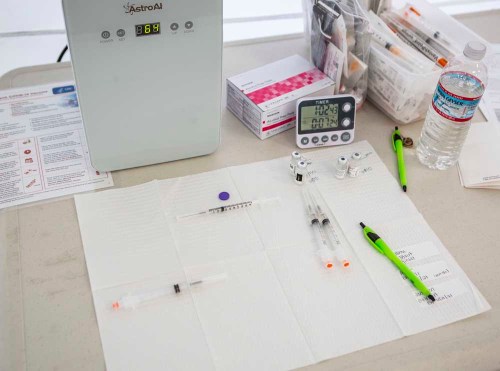Immunocompromised Oregonians will be first up for third dose of COVID-19 vaccine
Published 1:00 pm Thursday, August 19, 2021

- Syringes and vials of the Pfizer/BioNTech, Moderna and Johnson & Johnson COVID-19 vaccines await distribution at a Umatilla County Public Health mass vaccination site in Pendleton on April 30, 2021.
SALEM — Oregonians with compromised immune systems appear to be at the front of the line to receive booster shots against COVID-19 as part of a nationwide push to prolong immunity in the battle against the highly contagious delta variant.
The Oregon Health Authority announced Monday, Aug. 16, that it would implement federal guidelines and authorize third vaccine doses to immunocompromised Oregonians.
Effective Aug. 19, immunocompromised Oregonians can receive a third dose of either the Pfizer or Moderna vaccine as early as 28 days after receiving their second dose.
The state’s announcement came just hours before reports that federal health officials are expected to recommend all Americans, regardless of age, receive a COVID-19 “booster” shot eight months after receiving their second dose, according to The Associated Press.
The Food and Drug Administration updated its Emergency Use Authorizations last week for mRNA vaccines Pfizer and Moderna, recommending those with moderately or severely compromised immune systems receive a third dose of the COVID-19 vaccine.
Federal health officials used available data on the safety and effectiveness of a third dose of mRNA vaccines to make their recommendations. Additional doses of vaccines that don’t use mRNA, such as the single-dose Johnson & Johnson, have not yet been recommended by health experts.
Immunocompromised people would need to wait only at least 28 days after their second mRNA shot to receive their third. Unlike a booster shot, which is typically administered when a person’s immunity has waned, a third dose is meant to protect immunocompromised people who didn’t have an adequate response to the first two doses of the vaccine.
Immunocompromised people are defined as people whose immune responses have been lowered, including solid organ transplant recipients, people with advanced or untreated HIV infection, and people undergoing certain chemotherapy treatments, according to the Centers for Disease Control and Prevention.
The Oregon Health Authority said people who believe they are eligible should speak with their health care providers.









